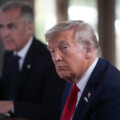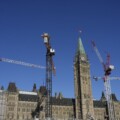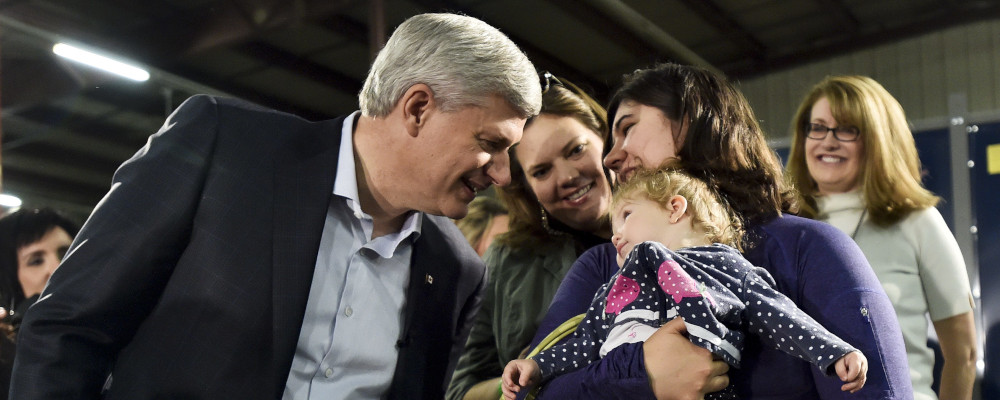Stephen Harper was right. To be successful in the modern age, Conservatives need to emphasize social conservatism over economic conservatism.
This is especially true in times of emergencies, such as a global pandemic.
I believe Canada’s Conservatives (and conservatives) — both provincial and federal — would have fared much better in these last 16 months had they followed Harper’s advice and leaned more heavily on social conservative insights and language rather than the paths of conventional economic conservatism or the more recent expressions of populism.
There are three main strains of modern Conservatism: populism, economic conservatism, and social conservatism. Each has a mainstream component and a problematic component. And Conservatives (and conservatives) are at their best when they find the right balance between the mainstream components of all three.
Mainstream populists favour more democracy over less democracy, more diffuse power over less diffuse power, and more transparency over less transparency. At its best, populism operates as a check on the tendencies of all ideologies towards elite impulses and away from the interests of ordinary citizens.
Conservatives should always cock their ear to mainstream populists, even if they don’t give them much more attention than that. The western populism of Preston Manning was, for example, a check on the central Canadian elitism that characterized the Mulroney government’s constitutional agenda (among others).
Populists, however, become problematic when given a chance to lead. Populist leadership is beguiling; it can be electorally successful by tapping into residual anger left by politicians and parties that ignore their populist wings. But populists are tragically inept at governing because, by definition, they are unhinged from ideology and/or reality—in office, they are adrift. In these uncertain times, unhinged populists are probably the biggest threat to conservatism. We can see this playing out most clearly in the U.S. Republican Party and the Canadian Maverick Party (formerly Wexit Canada) and People’s Party.
Mainstream economic conservatism has been the bread and butter of winning conservatism for decades. It focuses on smaller government, lower taxes, balanced budgets and free trade. It has been so successful that its main tenants have been adopted by Conservatism’s foes, at least until very recently.
The Chrétien/Martin Liberals were, in practice if not always in rhetoric, at least as good at balancing budgets, lowering taxes and expanding trade as the Mulroney Conservatives who preceded them. Putting aside the pandemic, the Trudeau Liberals have abandoned fiscal responsibility, but they are full-on free traders and did largely resist the temptation to spend all of the new revenue from carbon taxes.
Economic conservatives become electorally problematic when they tilt to the libertarians. Libertarians don’t just want smaller government, they want pretty much no government. They don’t just want lower taxes, but essentially view taxation as confiscation at gunpoint. And they don’t just want free trade, they want free-for-all trade.
Libertarians care more about what policy costs than about what policy does. Libertarianism is what conservatives are sometimes left with with regards to their political programmer when their centre-left opponents co-opt their mainstream ideas.
Caring about what policy does more than what policy costs is the preserve of social conservatism. Motivated by history, tradition and institutions, social conservatives act as a brake on the radical tendencies of the left in order to preserve “what is” over “what can’t possibly be.” It values the institutions of church/faith/community, family, and, yes, the state. It speaks the language of values rather than the dollars-and-cents language of economics.
Social conservatism is what led Harper to campaign on, and create, the largest social program in decades when he promised and delivered on $19 billion in cash payments to all parents with kids by his final year in government in 2015, which replaced a $5 billion dollar institutional, one-size-fits-all federal-provincial childcare scheme.
Social conservatives become problematic when they take a dogmatic, no-surrender approach to issues best left to the church rather than state. They are also problematic when fighting religious or pseudo-religious culture wars that speak to the deep convictions of a few, but mean next to nothing when it comes to the real-life needs of the many.
Populist leadership is beguiling; it can be electorally successful by tapping into residual anger left by parties that ignore their populist wings. But populists are tragically inept at governing.
The pandemic has seen a mashing together of the three problematic elements of conservatism. A new brand of populist religious libertarians arose as the worst of the three branches of conservatives jumped into each other’s arms. Some religious social conservatives who had their regular worship interrupted forgot about loving their neighbour and instead appropriated the language of liberty.
Libertarians found religion in opposition to vaccines — until now largely the fact-free preserve of the granola-crunching, Birkenstock-wearing looney left. And both adopted the populist rallying cries against elitism, facts and science best exemplified in followers of Q-Anon, which some of them clearly are.
As they made headlines by inviting and revelling in getting arrested, these new populist religious libertarians made fools of themselves while simultaneously giving Conservatives (and conservatives) a bad name.
Meanwhile, mainstream Conservatives (and conservatives) seemed to be at a loss to defend their good name. Which takes us back to Stephen Harper’s admonition to emphasize social over economic conservatism. The pandemic required that conservatives adopt the language and instincts of social conservatism rather than those of populism or economic conservatism.
Early in the pandemic, in a time of national distress and emergency, Conservatives (and conservatives) should have made a robust defence of the institution of government. Conservatives believe in the institution (a social conservative instinct) of government when it comes to national defence and national self-preservation, and this is precisely the language they ought to have employed. Because they value caring and sharing to preserve the institutions of family and community, they ought to have been at the forefront of calling for a robust government response.
Instead, Conservatives (and conservatives) found themselves well outside of the mainstream sentiment, either adopting the language of economic conservatives (e.g., overly concerned about costs and economic losses) or the language of fringe populists (e.g., comparing COVID to the common cold).
In the midst of the pandemic, Conservatives should have been at the forefront of decrying and fixing the long-term care system in the midst of the tragedy it was wreaking on families (in fact, some provinces did much better on this than others). The same goes for the burdens faced by caregivers — mostly moms — who suddenly had to watch, teach and care for children while continuing their full-time jobs. Social conservatism provides the value language and impetus for conservatives to address long-term care and childcare, but these were largely not employed.
And coming out of the pandemic, conservatives should have celebrated the institution of government for funding and accelerating the discovery of COVID vaccines. While the return to an economic “normal” matters, reuniting families and restoring our communities through vaccination is surely much more important than merely getting back to work.
In short, the social conservative toolbox gives Conservatives (and conservatives) the language and tools needed to offer a robust defence for the use of the institution of government during a time of national crisis — and surely a global pandemic qualifies — and to focus on the impact on families and communities. Doing so would have aligned Conservatives (and conservatives) with what the vast majority of voters — not only their voters, but all voters — were feeling.
Instead, Conservatives (and conservatives) sounded like they cared more about the cost of action rather than the consequences of inaction, while at best failing to combat conspiracy theories and and at worst giving them voice.
I have a sense that Stephen Harper would not have made that mistake.
Recommended for You

The Notebook by Theo Argitis: Carney’s One Big Beautiful Tax Cut, and fresh budget lessons from the U.K.

Christopher Snook: Is Canada sleepwalking into dystopia?

Rudyard Griffiths and Sean Speer: The fiscal hangover from the One Big Beautiful Bill hits Canada

Lucy Hargreaves: Canada needs builders, not bystanders



